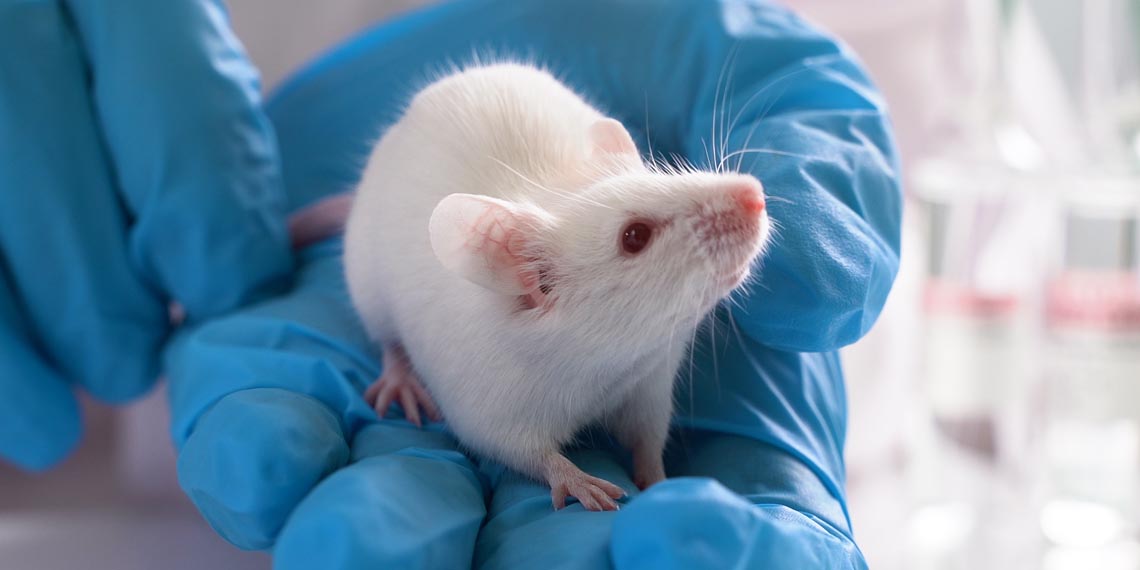A recent study on mice found that chronic social isolation reduces the activity of neurons in the anterior insular cortex region of the brain, resulting in impaired social memory. Treatment with (R)-ketamine counteracted this reduction, restoring social memory functioning in these mice. The paper was published in Molecular Psychiatry.
Humans need contact with other humans to stay healthy and maintain their mental well-being. Newborns require human interaction to develop their cognitive abilities adequately. Chronic social isolation occurs when a person has little or no contact with others for prolonged periods. This condition is typically accompanied by feelings of loneliness and disconnection.
Chronic social isolation can have severe mental health effects, including depression and anxiety. It can also result in cognitive decline or impaired cognitive development in children. Physically, it is associated with an increased risk of conditions such as heart disease, weakened immune function, and higher mortality rates. Over time, the lack of social contact can exacerbate stress and lead to a diminished sense of purpose.
The effects of social isolation occur because the brain changes its functioning when a person is exposed to chronic social isolation. Study author Rei Yokoyama and his colleagues aimed to examine whether some of these adverse changes could be counteracted with a pharmaceutical treatment. They focused on ketamine.
Ketamine is a medication primarily used for anesthesia and pain relief, but it is also utilized in lower doses for its rapid-acting antidepressant effects in the treatment of depression and other mental health conditions. It is usually a mixture of two molecular configurations: (R)-ketamine and (S)-ketamine.
(S)-ketamine is generally considered to have greater anesthetic potency and a faster onset of action, while (R)-ketamine has attracted research interest due to its potentially longer-lasting antidepressant effects with fewer side effects. The researchers were particularly interested in (R)-ketamine.
The researchers conducted a study on mice, dividing them into two groups. One group of mice was raised in social isolation, starting from three weeks of age, and kept individually isolated for six weeks in opaque plastic cages. The other group was housed 5-6 per cage in clear plastic cages of the same size.
When the mice were nine weeks old, the researchers began behavioral tests to assess their cognitive functioning. They conducted tests to measure animal analogues of feelings of helplessness (the forced swim test), social interactions (the three-chamber test), and memory (the five-trial social memory test). After these tests, the researchers conducted a series of physiological experiments on the mice.
The results showed that mice reared in social isolation displayed worse cognitive functioning in social memory tests. This impairment was accompanied by unique patterns of reduced neural activity in the anterior insular cortex after social contact. Treatment with (R)-ketamine, but not (S)-ketamine, counteracted this reduction in neural activity, effectively restoring social memory and social cognition in these mice.
“Our findings on the ability of (R)-ketamine to ameliorate social cognitive deficits may contribute to the development of treatments for various mental disorders that share similar social cognitive deficits,” the study authors concluded.
The study demonstrated that the two molecular configurations of ketamine have different effects on mice and that (R)-ketamine can counteract the effects of social isolation. However, this was a study on mice, not humans. While mice and humans share many physiological similarities, they are still very different species. Because of this, the effects on humans might not be identical.
Further research is necessary to explore the potential of (R)-ketamine as a treatment for social cognitive deficits in humans. Clinical trials would be essential to determine its efficacy and safety in treating mental disorders characterized by similar deficits.
The paper, “(R)-ketamine restores anterior insular cortex activity and cognitive deficits in social isolation-reared mice,” was authored by Rei Yokoyama, Yukio Ago, Hisato Igarashi, Momoko Higuchi, Masato Tanuma, Yuto Shimazaki, Takafumi Kawai, Kaoru Seiriki, Misuzu Hayashida, Shun Yamaguchi, Hirokazu Tanaka, Takanobu Nakazawa, Yasushi Okamura, Kenji Hashimoto, Atsushi Kasai, and Hitoshi Hashimoto.




